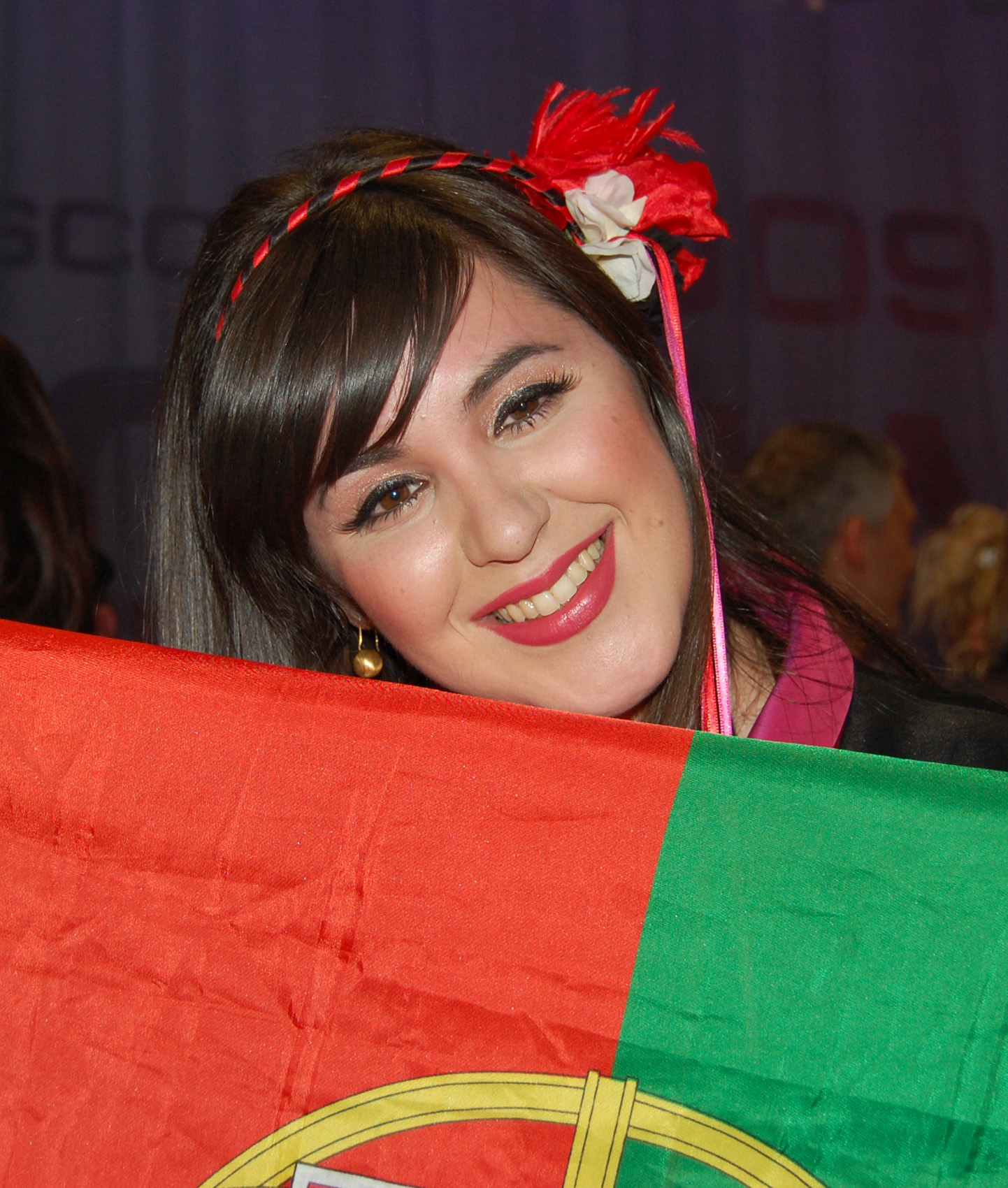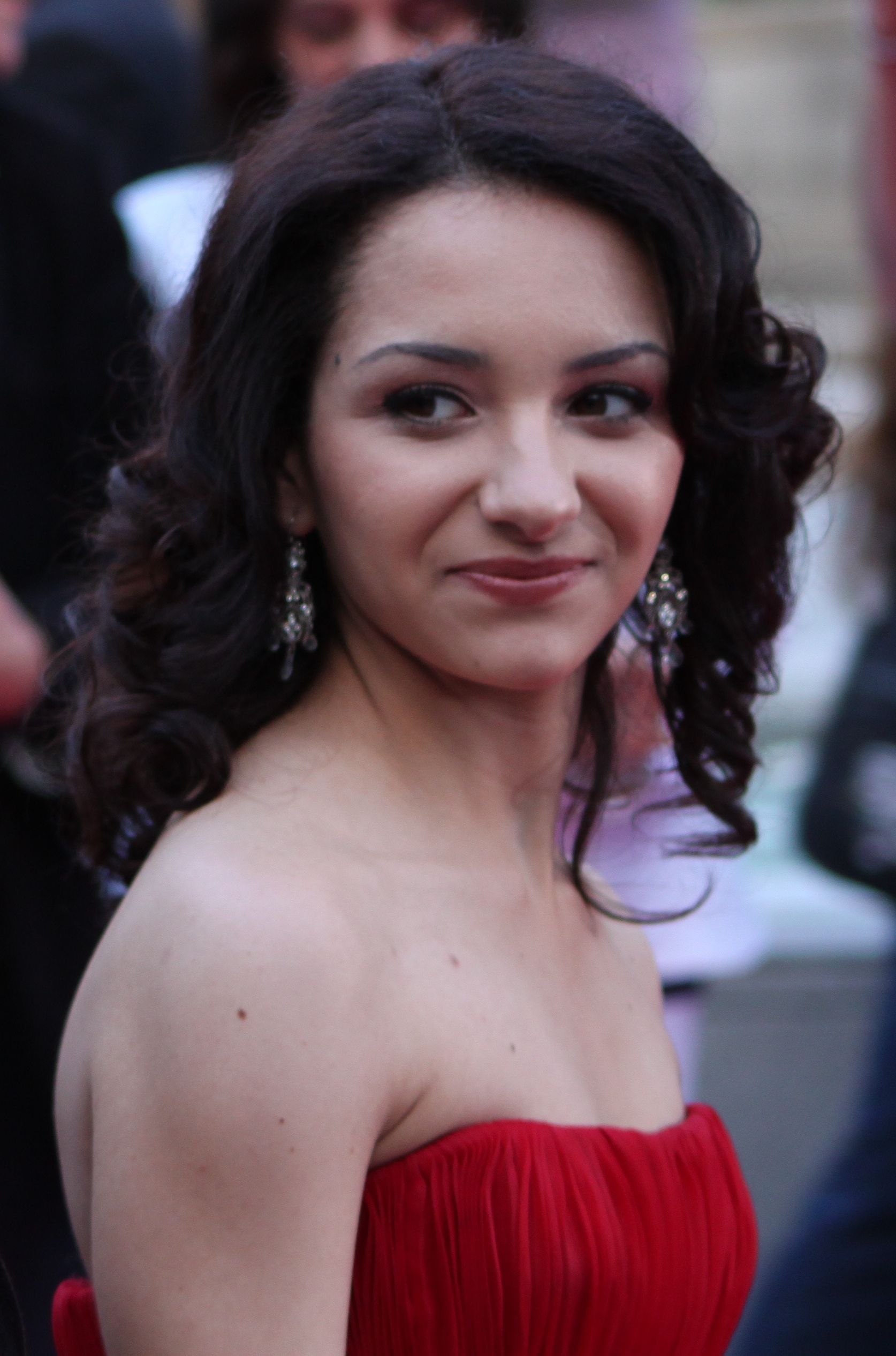|
Flor-de-Lis
Flor de Lis is a Portuguese folk music group which represented Portugal at the Eurovision Song Contest 2009 in Moscow, Russia, following their victory in the 45th edition of Festival da Canção, with the song "Todas as ruas do amor" ( en, All the streets of love). It qualified for the final from the first semi final where it finished 15th. Biography The beginnings The beginnings of Flor de Lis are closely linked to Pedro Marques' participation as a percussionist in the "Adufe" project, first conceived by José Salgueiro as an attraction for Expo-98, and which focussed on traditional Portuguese instruments. The resulting success led to several national and international events being held between 1999 and 2000, unearthing musician Pedro Marques' desire to explore the vast wealth of Portuguese music in conjunction with musical elements from other parts of the world. The project began to take shape in 2001, with the participation of several musicians in recording sessions ... [...More Info...] [...Related Items...] OR: [Wikipedia] [Google] [Baidu] |
Todas As Ruas Do Amor
Portugal participated in the Eurovision Song Contest 2009 with the song "Todas as ruas do amor" written by Pedro Marques and Paulo Pereira. The song was performed by the group Flor-de-Lis. The Portuguese broadcaster Rádio e Televisão de Portugal (RTP) organised the national final ''Festival da Canção 2009'' in order to select the Portuguese entry for the 2009 contest in Moscow, Russia. The competition took place on 28 February 2009 where "Todas as ruas do amor" performed by Flor-de-Lis emerged as the winner after achieving the highest score following the combination of votes from twenty regional juries and a public televote. Portugal was drawn to compete in the first semi-final of the Eurovision Song Contest which took place on 12 May 2009. Performing during the show in position 16, "Todas as ruas do amor" was announced among the 10 qualifying entries of the first semi-final and therefore qualified to compete in the final on 16 May. It was later revealed that Portugal placed ... [...More Info...] [...Related Items...] OR: [Wikipedia] [Google] [Baidu] |
Portugal In The Eurovision Song Contest 2009
Portugal participated in the Eurovision Song Contest 2009 with the song "Todas as ruas do amor" written by Pedro Marques and Paulo Pereira. The song was performed by the group Flor-de-Lis. The Portuguese broadcaster Rádio e Televisão de Portugal (RTP) organised the national final ''Festival da Canção 2009'' in order to select the Portuguese entry for the 2009 contest in Moscow, Russia. The competition took place on 28 February 2009 where "Todas as ruas do amor" performed by Flor-de-Lis emerged as the winner after achieving the highest score following the combination of votes from twenty regional juries and a public televote. Portugal was drawn to compete in the first semi-final of the Eurovision Song Contest which took place on 12 May 2009. Performing during the show in position 16, "Todas as ruas do amor" was announced among the 10 qualifying entries of the first semi-final and therefore qualified to compete in the final on 16 May. It was later revealed that Portugal placed ... [...More Info...] [...Related Items...] OR: [Wikipedia] [Google] [Baidu] |
Daniela Varela
Flor de Lis is a Portuguese folk music group which represented Portugal at the Eurovision Song Contest 2009 in Moscow, Russia, following their victory in the 45th edition of Festival da Canção, with the song " Todas as ruas do amor" ( en, All the streets of love). It qualified for the final from the first semi final where it finished 15th. Biography The beginnings The beginnings of Flor de Lis are closely linked to Pedro Marques' participation as a percussionist in the "Adufe" project, first conceived by José Salgueiro as an attraction for Expo-98, and which focussed on traditional Portuguese instruments. The resulting success led to several national and international events being held between 1999 and 2000, unearthing musician Pedro Marques' desire to explore the vast wealth of Portuguese music in conjunction with musical elements from other parts of the world. The project began to take shape in 2001, with the participation of several musicians in recording session ... [...More Info...] [...Related Items...] OR: [Wikipedia] [Google] [Baidu] |
Festival Da Canção
Festival da Canção (; "Song Festival") or Festival RTP da Canção is the name given to the national festival, produced and broadcast by Rádio e Televisão de Portugal (RTP) to choose the for the Eurovision Song Contest. It was first held in 1964. History Like most music festivals in isolated countries, the Festival da Canção was a very important event for the still-incipient Portuguese music industry of the 1960s and 1970s. Left-wing composers and writers would try to squeeze subversive lyrics in the contest, with great effect. After the 1974 revolution, incidentally code-triggered by that year's winner being played on national radio, Portugal became increasingly open to foreign culture, thus deeming the Festival as a lesser musical event, dominated by below-standard pop songs with little or no impact in the industry, although remaining a popular TV show. The 1990s saw a recovery of the contest's image, then considered a viable means for a new singer to start a career. ... [...More Info...] [...Related Items...] OR: [Wikipedia] [Google] [Baidu] |
Portugal In The Eurovision Song Contest
Portugal has participated in the Eurovision Song Contest 53 times since its debut at the 1964 contest. Since then it has missed five contests (, , , and ). The contest is broadcast in Portugal by Rádio e Televisão de Portugal (RTP). Portugal won the contest for the first time in and hosted the contest in Lisbon. Portugal finished last on its debut in 1964 and again in , before achieving its best result of the 20th century in , with Lúcia Moniz finishing sixth. The country then finished last for the third time in . Having not appeared in the final since and as holders of the record for most appearances in the contest without a win, Portugal won at the 49th attempt, when Salvador Sobral won the 2017 contest with the song "", Portugal's first top-five result in the contest. As hosts in 2018, the country finished last in the contest for a fourth time. History Portugal's debut entry was António Calvário with "". It was not a successful debut for the country, with Calvário ... [...More Info...] [...Related Items...] OR: [Wikipedia] [Google] [Baidu] |
Há Dias Assim
Portugal participated in the Eurovision Song Contest 2010 with the song "Há dias assim" written by Augusto Madureira. The song was performed by Filipa Azevedo. The Portuguese broadcaster Rádio e Televisão de Portugal (RTP) organised the national final ''Festival da Canção 2010'' in order to select the Portuguese entry for the 2010 contest in Oslo, Norway. After two semi-finals and a final which took place in March 2010, "Há dias assim" performed by Filipa Azevedo emerged as the winner after achieving the highest score following the combination of votes from twenty regional juries and a public televote. Portugal was drawn to compete in the first semi-final of the Eurovision Song Contest which took place on 25 May 2010. Performing during the show in position 14, "Há dias assim" was announced among the top 10 entries of the first semi-final and therefore qualified to compete in the final on 29 May. It was later revealed that Portugal placed fourth out of the 17 participating ... [...More Info...] [...Related Items...] OR: [Wikipedia] [Google] [Baidu] |
Vânia Fernandes
Vânia Sofia Olim Marote de Ribeiro Fernandes (born 25 September 1985) is a Portuguese singer from Funchal, Madeira (Portugal). Known for her powerful stage presence, as well as her prominent and versatile voice, Fernandes has participated in several singing contests and performed in public in both her home island of Madeira and on the mainland of Portugal since 1997. In 2007, Vânia won Portuguese public television's talent contest, ''Operação Triunfo'' (a kind of Star Academy). That same year, she completed her professional music studies and training in singing, including jazz, at Madeira's Conservatory. On 22 May 2008 Fernandes sung " Senhora do mar" (Lady of the Sea) during the second semi-final of the Eurovision Song Contest 2008 in Belgrade, Serbia. The song was the winner of the 2008 edition of Portugal's national selection final for Eurovision, the Festival da Canção. She represented Portugal in the Eurovision final on 24 May 2008 and gained 13th place (out of 25 ... [...More Info...] [...Related Items...] OR: [Wikipedia] [Google] [Baidu] |
Eurovision Song Contest 2009
The Eurovision Song Contest 2009 was the 54th edition of the Eurovision Song Contest. It took place in Moscow, Russia, following the country's victory at the with the song "Believe (Dima Bilan song), Believe" by Dima Bilan. Organised by the European Broadcasting Union (EBU) and host broadcaster Channel One Russia, Channel One (C1R), the contest was held at the Olympic Stadium (Moscow), Olimpiysky Arena, and consisted of two semi-finals on 12 and 14 May, and a final on 16 May 2009. The semi-finals were presented by Russian model Natalia Vodianova and television presenter Andrey Malakhov, while the final was presented by Russian television presenter Ivan Urgant and former Russian contestant Alsou, Alsou Abramova, becoming the first and to date only time that two different sets of presenters had hosted the semi-finals and finals. Forty-two countries participated in the contest - down one from the record forty-three the year before. Slovakia in the Eurovision Song Contest, Slovakia ... [...More Info...] [...Related Items...] OR: [Wikipedia] [Google] [Baidu] |
Filipa Azevedo
Filipa Daniela Azevedo de Magalhães (, born 31 July 1991), is a Portuguese singer. She is currently resident in the United Kingdom while attending music school in London. Azevedo represented Portugal in the Eurovision Song Contest 2010 with the song "Há dias assim", finishing 18th out of 25 in the final held in Oslo on 29 May 2010 in Oslo, Norway. Early life Azevedo was born in Porto and spent the first fifteen years of her life living in the village of Montezelo, close to Melres, a parish of Gondomar, in the northern Portuguese district of Porto. She enrolled at age 12 on a course in Western Concert Flute at the Porto Music Conservatory, discovering there a passion and talent for singing. She soon quit her instrument classes to pursue a musical career, signing up at age 16 for ''Família Superstar'' (the Portuguese version of '' The Superstar Family Show''). Career 2007: ''Família Superstar'' The show's judges greeted Azevedo's performance with praise: Anjos singer Sé ... [...More Info...] [...Related Items...] OR: [Wikipedia] [Google] [Baidu] |
Belgium
Belgium, ; french: Belgique ; german: Belgien officially the Kingdom of Belgium, is a country in Northwestern Europe. The country is bordered by the Netherlands to the north, Germany to the east, Luxembourg to the southeast, France to the southwest, and the North Sea to the northwest. It covers an area of and has a population of more than 11.5 million, making it the 22nd most densely populated country in the world and the 6th most densely populated country in Europe, with a density of . Belgium is part of an area known as the Low Countries, historically a somewhat larger region than the Benelux group of states, as it also included parts of northern France. The capital and largest city is Brussels; other major cities are Antwerp, Ghent, Charleroi, Liège, Bruges, Namur, and Leuven. Belgium is a sovereign state and a federal constitutional monarchy with a parliamentary system. Its institutional organization is complex and is structured on both regional ... [...More Info...] [...Related Items...] OR: [Wikipedia] [Google] [Baidu] |
Portuguese Musical Groups
Portuguese may refer to: * anything of, from, or related to the country and nation of Portugal ** Portuguese cuisine, traditional foods ** Portuguese language, a Romance language *** Portuguese dialects, variants of the Portuguese language ** Portuguese man o' war, a dangerous marine cnidarian that resembles an 18th-century armed sailing ship ** Portuguese people, an ethnic group See also * * ''Sonnets from the Portuguese'' * "A Portuguesa", the national anthem of Portugal * Lusofonia * Lusitania Lusitania (; ) was an ancient Iberian Roman province located where modern Portugal (south of the Douro river) and a portion of western Spain (the present Extremadura and the province of Salamanca) lie. It was named after the Lusitani or Lusita ... * {{disambiguation Language and nationality disambiguation pages ... [...More Info...] [...Related Items...] OR: [Wikipedia] [Google] [Baidu] |
Senhora Do Mar (Negras águas)
Portugal participated in the Eurovision Song Contest 2008 with the song "Senhora do mar (negras águas)" written by Andrej Babić and Carlos Coelho. The song was performed by Vânia Fernandes. The Portuguese broadcaster Rádio e Televisão de Portugal (RTP) organised the national final ''Festival da Canção 2008'' in order to select the Portuguese entry for the 2008 contest in Belgrade, Serbia. The competition took place on 9 March 2008 where the winner was selected exclusively by public televoting. "Senhora do mar (negras águas)" performed by Vânia Fernandes emerged as the winner with 17,650 votes. Portugal was drawn to compete in the second semi-final of the Eurovision Song Contest which took place on 22 May 2008. Performing as the closing entry during the show in position 19, "Senhora do mar (negras águas)" was announced among the 10 qualifying entries of the second semi-final and therefore qualified to compete in the final on 24 May. This marked the first time that Portu ... [...More Info...] [...Related Items...] OR: [Wikipedia] [Google] [Baidu] |



.jpg)